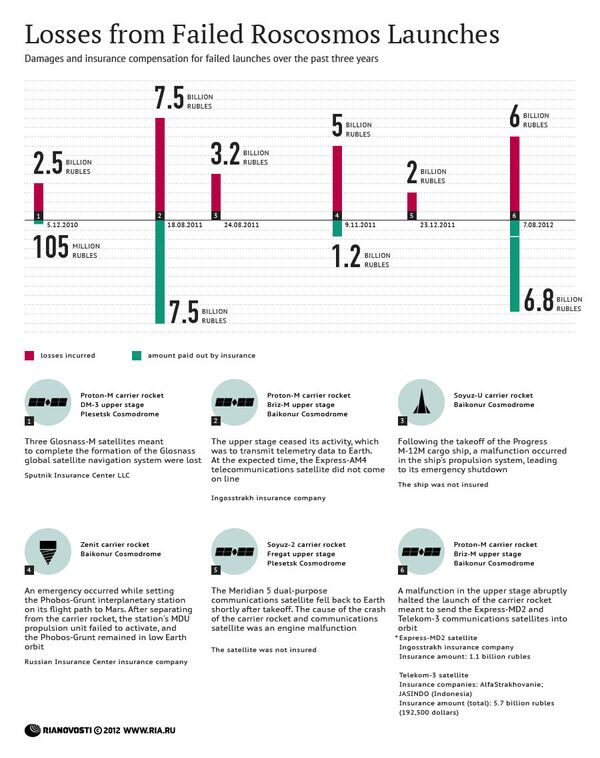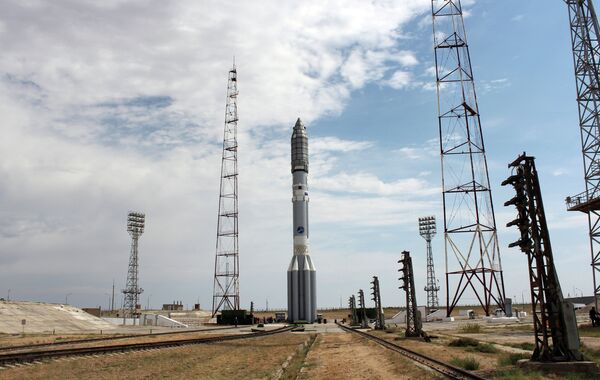MOSCOW, July 4 (RIA Novosti) – Russia’s Federal Space Program is ineffective, largely due to poor management of space activities and budget funds allocated for space projects, the Audit Chamber said Thursday.
The absence of a comprehensive management system in regard to space programs, projects, contracts and expenses under the Federal Space Program for 2006-2015 made this program highly ineffective, despite the increase in budget spending for space exploration by 2.5 times in the past three years, the Audit Chamber said in a statement.
According to the results of a comprehensive review of managerial practices in Russia’s space industry, only 40 percent of the goals set by the Federal Space Program were achieved in 2010, 66.7 percent in 2011, and 73.3 percent last year.
In particular, Russia launched only 47.1 percent of the required number of satellites into orbit in 2010-2012.
The Audit Chamber also blamed Russia’s Federal Space Agency, or Roscosmos, for relegating control over major space projects, including the production and launches of Proton-M rockets, to individual state-run or private companies.
"Roscosmos is among the biggest and least disciplined [of government agencies] that blatantly ignore regulatory requirements and best practices in state procurement orders," the Audit Chamber said.
As a result, Russia’s space program suffered a slew of setbacks in recent years, most of them blamed on faulty hardware.
The most recent mishap took place on Tuesday when a Proton-M rocket carrying three Glonass navigation satellites exploded shortly after launch from the Baikonur space center in Kazakhstan.

Russia already lost three satellites for the Glonass global positioning system, Russia’s answer to the United States’ GPS, in a similar accident with a Proton rocket in December 2010.
Deputy Prime Minister Dmitry Rogozin, who oversees the defense and aerospace industry and has been ordered to oversee the investigation into the Tuesday accident, said "harsh decisions" must be taken because Russia's rocket and space industry "cannot continue to exist in its current form."
The government has earmarked 2.1 trillion rubles ($70 billion) on the space program through 2020, though part of the sum is supposed to come from private investment. However, the Finance Ministry has recently proposed cutting space-program spending due to ineffective management of state funds.




